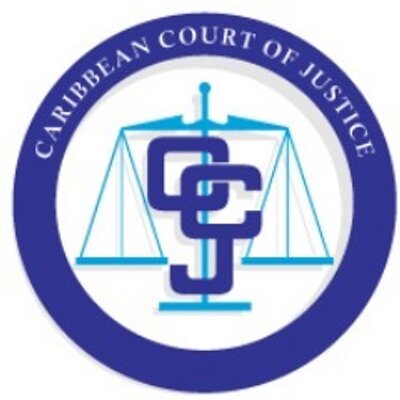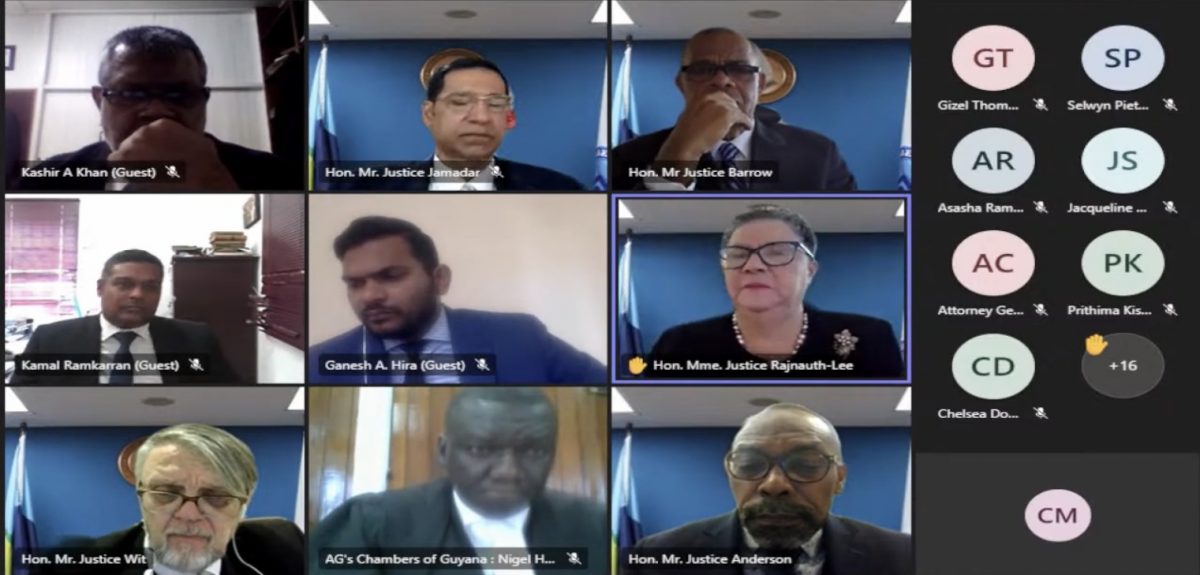One day after its severe reprimand of Attorney General Anil Nandlall SC, on whose Facebook page a post was made announcing the outcome of an at-the-time embargoed judgment, the Caribbean Court of Justice (CCJ) has officially issued a statement on the issue said it served to bring the entire administration of justice into disrepute.
Reemphasizing that it was “extremely disappointed” at learning that the post had been made on the Facebook page of head of the local Bar, the CCJ said the premature, unauthorized disclosure of the result of the litigation is “inexcusable.”
The Court was blunt in saying that the post emanating from the page of the Attorney General (AG) “apparently on the part of a staffer,” as is Nandlall’s claim, places the administration of justice itself in disrepute.
 In the scathing statement the CCJ said “it betrays the confidence of the Court and, given the fact that it emanated from the Facebook account of the person holding the office of the Attorney General, it serves to bring the entire administration of justice into disrepute.”
In the scathing statement the CCJ said “it betrays the confidence of the Court and, given the fact that it emanated from the Facebook account of the person holding the office of the Attorney General, it serves to bring the entire administration of justice into disrepute.”
It was on this point that the Court then said it “prides itself on the measures it takes to enhance its integrity, impartiality and independence.”
After all attorneys in the case were sent a confidential draft of the embargoed judgment on Tuesday ahead of the ruling—which is the practice of the Court—a post appeared on Nandlall’s Facebook page announcing what the outcome of the ruling was.
Sparking confusion as the Court was not scheduled to sit until Wednesday to deliver its judgment, the post was later removed, but had already been viewed, screen-shot and shared by many social media users.
Nandlall who was absent from court on Wednesday when the issue was addressed, provided the explanation through his Solicitor General Nigel Hawke who faced the music, that the fault was not his (Nandlall’s), but rather “an administrator” of his page.
After the removal of the initial post on Tuesday, however, Nandlall did not acknowledge the post amounting to a breach of protocol on embargoed judgments. What was acknowledged in a subsequent post, was that the copies of the ruling sent were confidential and had been transmitted to all attorneys in the matter.
He did not say how the administrator had gotten hold of the decision which would have been sent to his email address.
At the hearing on Wednesday, Hawke on behalf of Nandlall offered his unreserved apology to the Court and his colleagues for what he described was an error.
On an inquiry from Justice Denys Barrow which was supported by the five-panel Bench, Hawke said that the AG would undertake to issue a public apology via the same medium the post had been made.
Following the conclusion of the hearing on Wednesday, the AG posted on his page that he was sorry, but after the explanation that the slip-up was not actually his, but rather “an administrator” whom he blamed.
He then eventually ended his post by saying “I hereby offer to the CCJ my sincerest apologies for this grave error. Absolutely no disrespect or ill-motive inspired, was intended, or was connected with this post.”
Under review
Registering its displeasure over the leak, the Court in its statement said that its judges and staff “will continue to work diligently, incessantly, to build the public’s trust and confidence in the Court.”
It further added that in an effort to ensure “the highest standards of confidentiality and probity are maintained,” the Court will continuously keep under review, its policy of sending advanced copies of its judgments to attorneys.
At the hearing on Wednesday, Justice Jacob Wit assured that the last has not been heard on the “grave” and “serious” breach of its confidentiality protocol, noting that the Court will be further considering the issue and make known whatever decision it finally takes regarding matters generally, and more “sensitive” ones as that from which the leak was made.
The Trinidad-based apex court for Guyana has said that it may have to review its policy regarding the confidential release of rulings to attorneys, perhaps especially those in Guyana, as trust seems to be compromised thus bringing its integrity into disrepute.
The Court explained in its statement that like some other apex courts, its practice is to send to all lawyers appearing before it, advance copies within 24 hours of its formal ruling.
The intent the Court said, is to give the attorneys an opportunity not to re-litigate the dispute, but to comment on any perceived errors in the draft; while noting that those advanced copies are clearly marked “CONFIDENTIAL.”
The Court said, too, that counsel are warned to treat with those releases “in the strictest confidence” pending the delivery of the judgment.
Clearly incensed and concerned over the potential damage to its reputation, the Bench collectively agreed on Wednesday that because of the slip-up made on the page of Guyana’s Attorney General, its policy framework for the release of drafts of its judgments will have to be reviewed.
Justice Wit took particular issue with the post made, noting the report from attorney Selwyn Pieters of the impression being created that Nandlall “has some hidden line with the Court. He gets this (the judgment) first and no one else knows about it.”
Justice Wit continued, “we know that this is not so, but this is just an example of how these things may affect” the image of the court.
Pieters—one of the opposing attorneys to the appeal filed before the court by Nandlall—had said that an apology from the AG would be neither sufficient nor accepted, especially since the post was widely shared on social media and placed the administration of justice into disrepute and the Court in a negative light.
He said that while he appreciates Hawke’s apology, the page belongs to the Attorney General and as the chief law officer and leader of the bar, and that what had transpired was unacceptable.
Justice Maureen Rajnauth-Lee placed on record that apart from the apology Hawke had offered, she was particularly concerned about the impact on the court’s integrity, even as she called for steps to be crafted to remedy that impact.
“It is a very, very serious matter,” she said.
“I think you will leave with the impression that the Court is very displeased, and that is the correct interpretation of what we have said,” Justice Wit then added.





